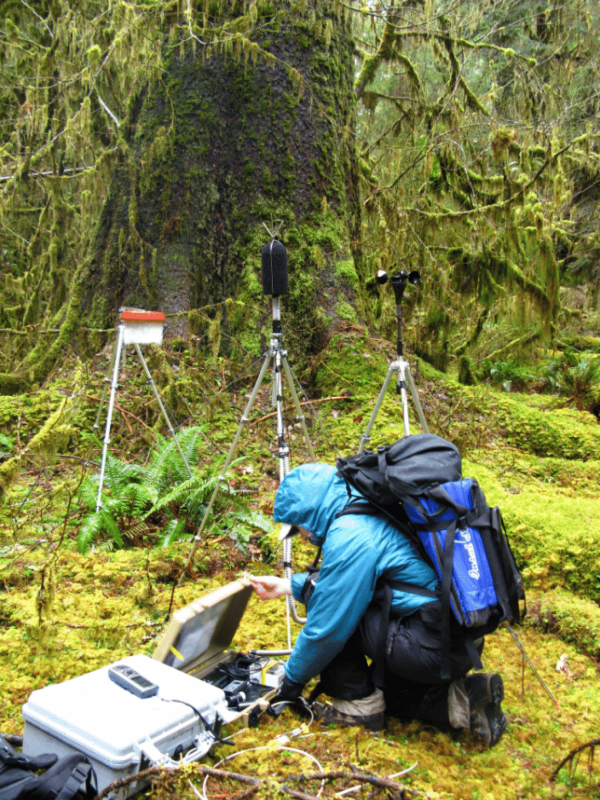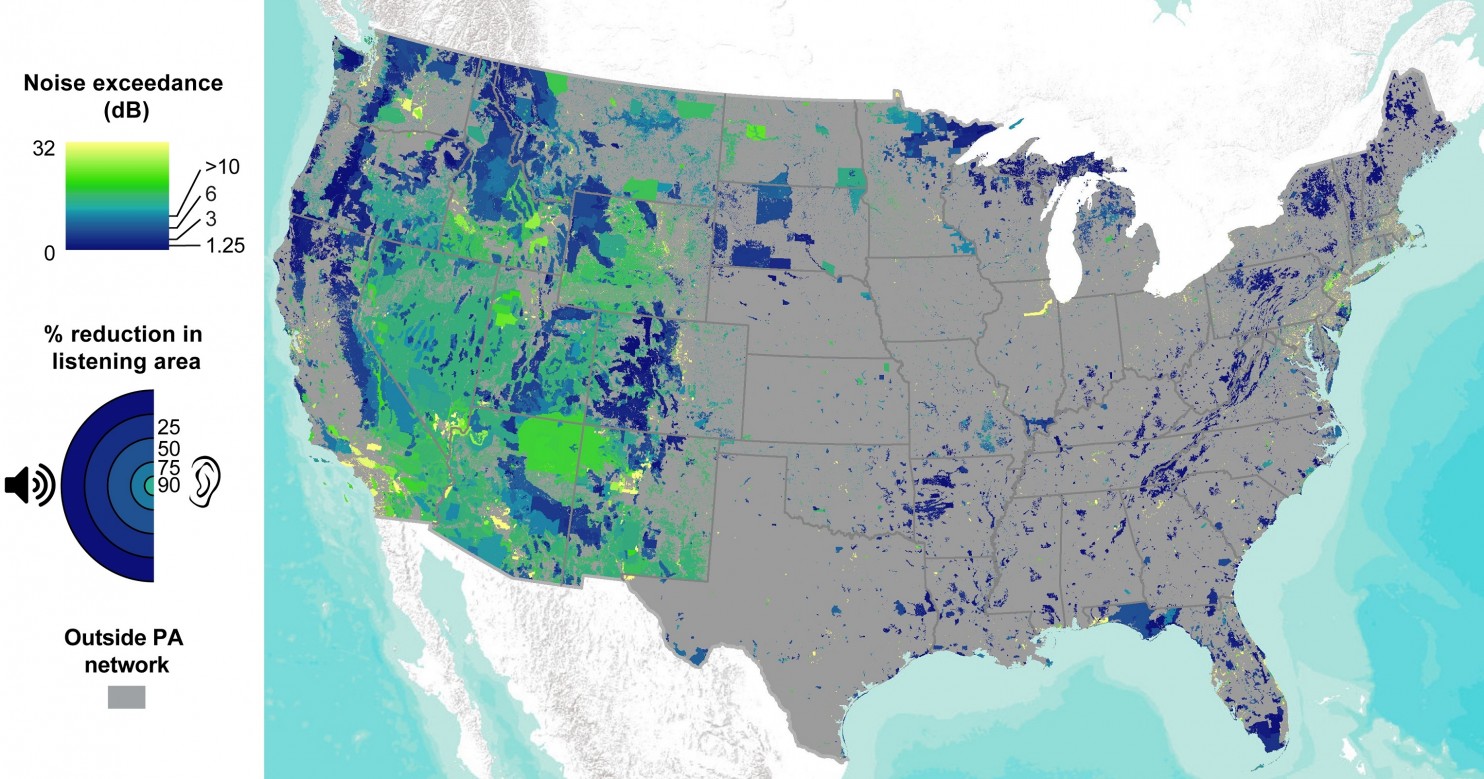 When you need a quiet space to focus, where do you go? Perhaps you retreat into the comfort of your bedroom, find a spot under a willow tree, or head to the library where silence is strictly enforced.
When you need a quiet space to focus, where do you go? Perhaps you retreat into the comfort of your bedroom, find a spot under a willow tree, or head to the library where silence is strictly enforced.
No matter where we go, we cannot get away completely from the sounds that surround us.
For animals in national parks all over the United States, noise pollution is now a cause of worry as it is affecting fragile ecosystems. And, the biggest cause of this pollution- none other than humans themselves!
Traffic and Shrieks, Oh My!

Noise pollution in nature can come from many sources – from the ‘vroom’ sound of a car to planes in the sky, as well as shrieks and laughter from excited hikers.
In an extensive and thorough study, National Park Service scientists compiled data from more than 400 sites all over the country. The first step was to set up listening stations in different geographic areas, to record and measure sounds. These stations were set up for a month, and the results were then handed to acoustic specialists to identify the sources of different sounds.
The way scientists determined noise pollution in an area was simple – almost like a math problem! All they had to do was to subtract out the ‘natural sounds’ pinpointed by acoustic specialists.
Sound is measured in a unit called decibels. In 63% of 'protected areas' which are home to endangered species, scientists observed an increase of 3 decibels. In more than one in five protected areas, an extra 10 decibels of noise pollution from humans was recorded.
Cause for Concern
An ecosystem refers to an environment that supports different organisms which interact with one another and where every organism has a role to play. This is why the slightest change in an ecosystem can cause devastating effects.
 Rachel Buxton, an acoustic ecologist claims that noise pollution can mean the difference between life and death for animals that rely on sounds to capture their prey, or in other cases, run from it. When an animal hears a foreign sound they might have never heard before, they are bound to react differently.
Rachel Buxton, an acoustic ecologist claims that noise pollution can mean the difference between life and death for animals that rely on sounds to capture their prey, or in other cases, run from it. When an animal hears a foreign sound they might have never heard before, they are bound to react differently.
Even plants are affected as unnatural sounds chase away the animals and birds that pollinate the plants. Some birds have taken to singing at night instead of daytime, just so their voices can be heard.
Scientists have observed a higher pitch in male frogs, which in turn reduces their chances of reproduction, as the female frogs prefer a lower pitch.
In order to combat noise pollution, various ideas from shuttles within national parks to a simple ‘quiet’ sign have been enacted. By reducing noise pollution, you are not only conserving the fragile ecosystem but also preserving the beauty of nature-- so howls, squawks, and the gentle swish of the wind are the only sounds you hear in the wilderness.







